

Did you know that the digital infrastructure in the Netherlands is growing at a pace never seen before? It’s predicted to revolutionize the way businesses operate worldwide. But what’s fueling this unprecedented growth?
As digital landscapes evolve, the importance of AI and IT trends in the Netherlands cannot be overstated. With key players in the Dutch market utilizing cutting-edge technologies, the future looks brighter than ever.
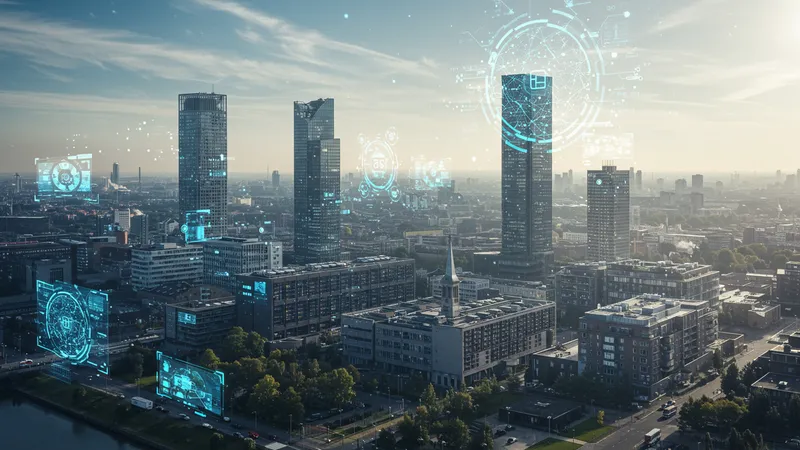
But did you know that 2023 is witnessing an unexpected surge in AI-driven strategies that challenge traditional business models, disrupting industry norms? The Netherlands has become a unique hub, pushing boundaries with AI. Yet, few are prepared for the ripple effects that are just around the corner… But that’s not even the wildest part…
In the heart of Europe, the Dutch IT sector is integrating AI in ways that leapfrog other tech giants. This small nation is leading a quiet revolution that’s setting new global standards. AI, machine learning, and digital infrastructure are no longer optional but are shaping new economic narratives. But which companies are already paving the way, and what implications does this hold for global markets and industries?
What happens next will shock even the experts, unveiling a narrative of innovation, competition, and transformation unlike any we've seen. The Dutch approach to digital infrastructure might just redefine what’s possible in the digital economy—are you ready to find out how?
The Netherlands isn't just following the AI trend—it's setting the pace. Industries from agriculture to finance are embracing AI to optimize operations and enhance customer experiences. Dutch enterprises have adopted AI not only as a tool but as an essential strategy, cutting operational costs significantly while boosting efficiency.
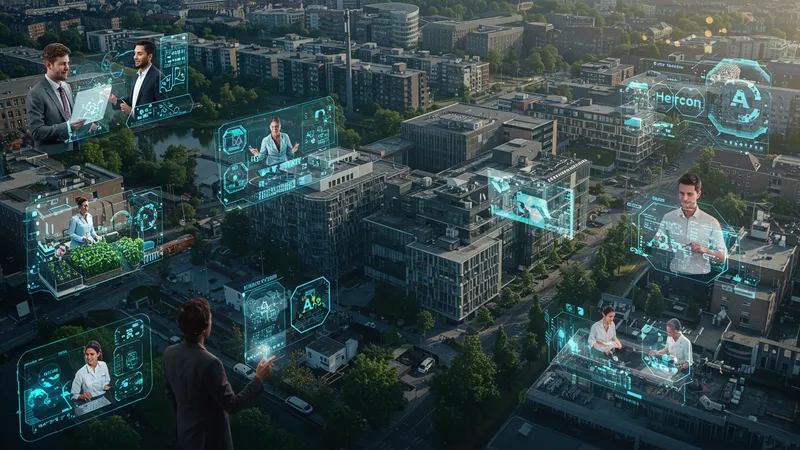
This aggressive adoption is not just a coincidence. It’s a strategic embrace of innovation, attracting global investments and partnerships. Companies are investing heavily in research, seeking to leverage AI for predictive analytics, automated customer service, and even in unforeseen areas like personal wellness. What you’ll discover next might make you rethink everything...
Furthermore, Dutch universities are at the forefront, collaborating with the industry to drive AI innovation. Programs aimed at integrating AI into various sectors are creating a new generation of tech-savvy professionals. These collaborations are not just improving products but are fueling Dutch competitiveness on the global stage.
Yet, the most surprising facet is how these advancements are integrated into everyday life, influencing how Dutch cities operate and interact with citizens. What happens when this innovation spills beyond borders? More surprises await as the digital horizon broadens, creating a ripple effect in Europe and beyond. Just wait till you hear about the international implications...
Data infrastructure development is rapidly transforming, and the Netherlands is at the forefront, boasting the highest data center density in Europe. But what does this mean for the future of business operations? With cutting-edge data centers, data processing capabilities have reached new heights, allowing for unprecedented scalability.
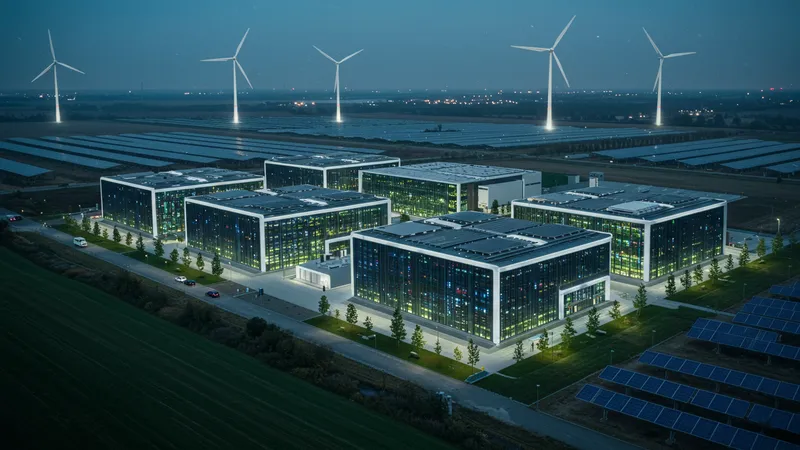
A key aspect driving this revolution is sustainability. Dutch data centers are leading the charge with energy-efficient designs, utilizing renewable energy sources, making them not just powerful but also environmentally conscious. This trend positions the Netherlands uniquely in the green tech movement.
In an era dominated by data, secure data management is critical. The Netherlands has implemented robust cybersecurity measures and innovative technologies like blockchain to protect data integrity, setting a gold standard in data safeguards.
But the real game-changer lies in cross-sector collaboration where industries push for shared standards and frameworks. This cultural shift towards integrated data strategies is creating a new paradigm of collaboration and efficiency. What lies beyond this transformation? Discover how industries are rewriting the rulebook...
Enter the world of quantum computing, a sci-fi-like advancement turning into reality within Dutch borders. Quantum computing promises to solve complex problems that are impossible for traditional computers. With Dutch institutions leading groundbreaking research, this tech is no longer in its infancy.

Imagine computations that were once thought to take decades reduced to minutes. Quantum computing’s potential is realized as Dutch researchers develop algorithms that redefine industry applications from logistics to pharmaceuticals.
These developments aren’t hidden in labs anymore. Businesses are beginning to access quantum computing as a service, leveling the playing field for startups and established companies alike.
The growing accessibility of this revolutionary technology is sparking interest globally and could soon redefine numerous sectors. What’s the catch? Hold your breath for the challenges and opportunities they bring. Is the world truly ready for such a seismic shift?
The Netherlands isn’t just embracing the Internet of Things (IoT); it’s embedding it into the very fabric of urban life. Smart city initiatives are integrating IoT to enhance connectivity, sustainability, and overall quality of life.
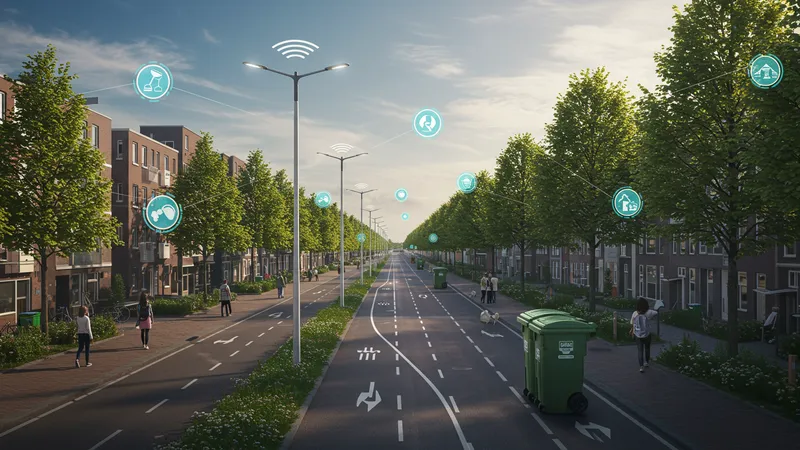
From smart lighting to waste management systems, Dutch cities are transforming into living labs, offering seamless connectivity and efficiency. The results? Drastically reduced energy consumption and waste, setting benchmarks for future cities.
But it's not just about technology; it's about transforming community interaction, urban planning, and resource management. This interconnected ecosystem is designed to respond intelligently to residents' needs, reshaping daily urban experiences significantly.
But integration isn’t entirely seamless; challenges arise dealing with legacy systems and citizen data privacy. These innovative models raise critical questions about the balance between benefits and potential privacy implications. What might be overlooked amid this digital leap? The answers could surprise you...
While the digital transformation ardently reshapes the Dutch landscape, the rush to innovate doesn’t come without risks. With emerging technologies, the vulnerability to cyber threats is at an all-time high. The Netherlands faces an increasing need for robust cybersecurity frameworks to guard against sophisticated digital attacks.

Cybersecurity is not just a technical issue; it poses financial and reputational risks that can cripple organizations. Regulatory frameworks and proactive measures are critical in safeguarding against breaches but not all institutions are equally prepared.
Further complicating matters is the human element. As employees interface with more technology, social engineering becomes a potent threat, compounded by inadequate awareness and resistance to change.
What’s lurking beneath this technological revolution is a complex web of concerns which, if left unchecked, could unravel the very fabric of this digital dream. How will stakeholders address these challenges? Future solutions could redefine defensive strategies globally.
Sustainability is at the heart of the Netherlands’ digital revolution, as it integrates green IT practices into its growth strategy. Eco-friendly data centers, efficient energy usage, and sustainable design principles are not mere trends, but pivotal elements of the nation’s digital ethos.
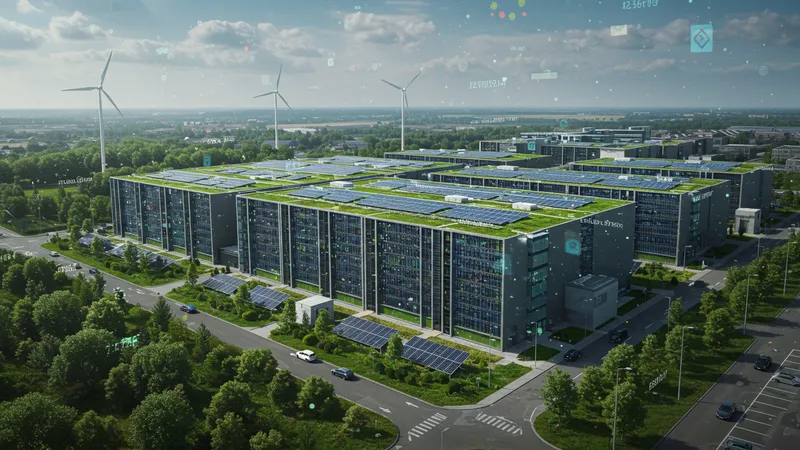
The push towards sustainable tech isn’t motivated solely by environmental concerns; it also presents significant cost benefits. Energy savings and reduced carbon footprints translate to economic gains, driving a trend that’s as financially savvy as it is responsible.
Through incentives and legislation, the Dutch government promotes adoption of sustainable practices, positioning the country as a global leader in environmentally conscious tech development.
Yet, despite the successes, significant challenges persist. Balancing rapid technological advancement with long-term sustainability goals presents a significant policy challenge. Can the Netherlands maintain its green momentum while continuing its digital ascent? The answers are poised to have a global impact on sustainable technology.
The digital boom is transforming the Dutch labor market, birthing new roles and redefining existing ones. Yet, the wave of AI and automation poses a challenge: maintaining workforce adaptability and mitigating displacement risks.
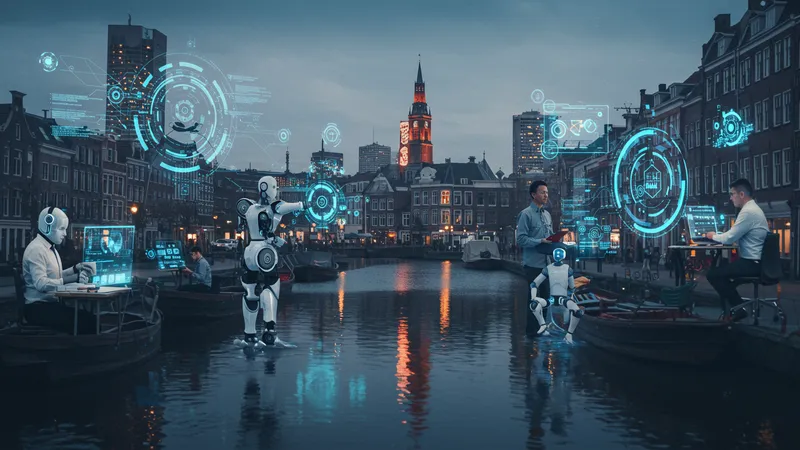
Initiatives to upskill and reskill the workforce are at the forefront, aiming to bridge skills gaps as AI and robotics become invaluable in the workplace. The focus is on lifelong learning and flexibility, empowering Dutch workers to stay competitive.
Companies are also reimagining their workplace cultures to attract the best talent. By fostering environments that blend innovation with work-life balance, they not only retain tech professionals but inspire them to lead industry changes.
The merging of technology and human potential isn’t frictionless. Ethical considerations regarding AI in the workplace are sparking debates about privacy and bias. How will these discussions shape the future work landscape? The ripple effects are bound to transcend the Netherlands’ borders.
The Dutch financial sector is amidst a digital makeover, driven by innovative fintech solutions. Embracing blockchain, AI, and digital banking, the landscape is evolving towards swift, secure, and personalized financial services.

This evolution goes beyond consumer-facing changes. Backend improvements using AI for fraud detection and blockchain for transaction transparency are setting new industry standards for safety and reliability.
Yet, with new technology comes increased regulatory scrutiny. The balance between innovation and compliance is delicate, as financial institutions navigate the complexities of modern regulation while trying to innovate.
The future of finance in the Netherlands will heavily depend on these advancements—how will they redefine trust and security in a digital-first world? The ongoing narrative hints at a future where these technologies could dominate global finance norms.
As the Netherlands powers through its digital transformation, global trade networks are evolving alongside it. The infusion of AI and smart logistics is enhancing supply chains and logistics with unprecedented precision and efficiency.
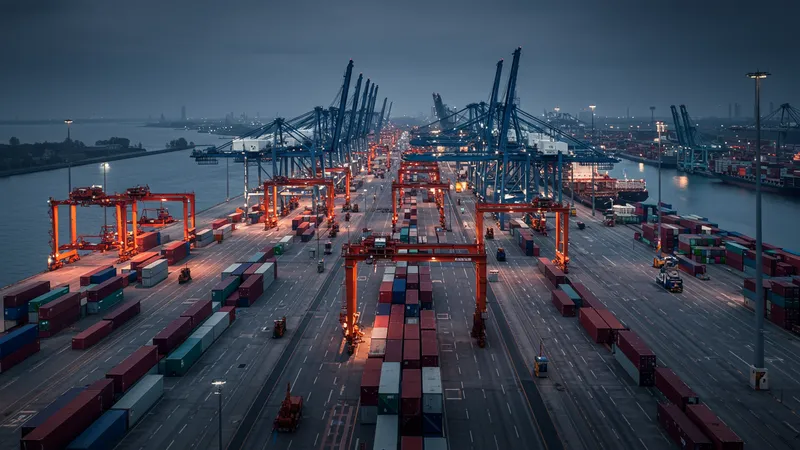
With its strategic location, the Netherlands is setting new benchmarks in transport and logistics innovation. Automated ports and AI-driven logistics are reducing turnaround times, positioning it as a cornerstone of global trade.
But this technological prowess isn’t just local. The ripple effects are influencing trade protocols and logistics standards worldwide, fostering a new era of international cooperation driven by technology.
The question remains: how will other nations catch up, adapt, or compete with these advancements? The answers could reshape international trade landscapes and power dynamics in unimaginable ways.
Global tech giants have not only found a home in the Netherlands but are also pivotal drivers of its digital economy. Companies like Google and Microsoft, establishing significant operations here, boost innovation through investment and collaboration.
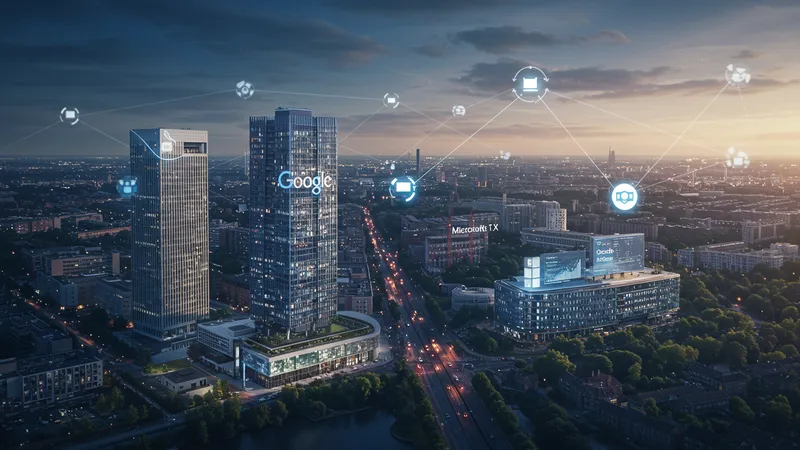
This influx of global brands creates a breeding ground for tech innovation, spurring local enterprise growth and making the Netherlands an attractive hub for tech talent.
Their presence also sparks debates on local versus global influence. The interaction between these powerhouses and local companies shapes tech landscapes and prompts discussions about digital sovereignty and economic dependency.
While the collaboration yields groundbreaking advances, it also conjures challenges. How will these dynamics influence Dutch tech independence and policy? The balance will undoubtedly affect future international tech collaborations.
Amidst the digital boom, the Netherlands strives to ensure inclusivity, bridging the digital divide across its regions. Investments in rural connectivity and affordable access form the backbone of this mission.
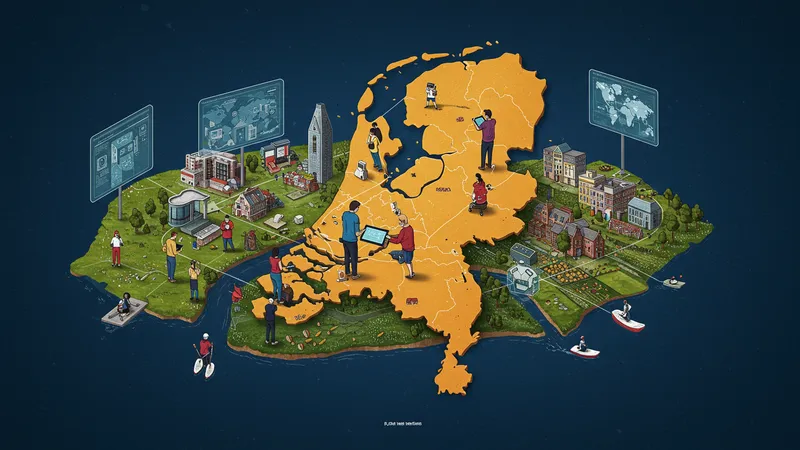
The government’s proactive stance on digital literacy extends beyond infrastructure, focusing on equipping all citizens with the skills needed to thrive in a digital world.
Yet, disparities remain, with underconnected areas lagging behind, raising questions about equitable growth. Bridging this divide is not only a social necessity but a potential economic boon, unlocking untapped markets and potential.
The ongoing efforts depict a larger narrative of digital inclusivity. Can these measures close the gap entirely, and what would such unity mean for the Dutch economy? The resolution to these challenges could set global precedents.
The educational landscape in the Netherlands is reborn through digital innovation, equipping future generations with skills for an AI-driven world. Interactive and personalized learning models reign, driven by AI tools enhancing both teaching and learning experiences.
Emerging technologies like VR and AI are not limited to tech subjects but are applied across disciplines, offering immersive learning that redefines educational engagement and outcomes.
This evolution fuels debates on traditional versus modern learning paradigms, highlighting the challenges of integrating new technologies into established curriculum frameworks.
What will the education revolution mean for the future workforce? The answer could redefine educational strategies globally, creating lifelong learners equipped for a tech-centric future.
The digital transformation within the Netherlands extends beyond the economy and into its cultural identity. The integration of AI and IT trends redefines how art, media, and cultural experiences are created and consumed.
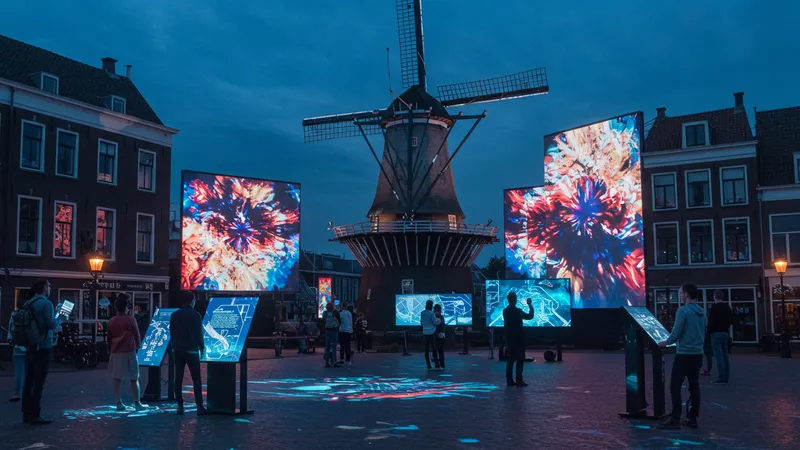
Artists and creators are harnessing technology, pushing the boundaries of creativity. Digital platforms have democratized art access, offering wider audiences a taste of Dutch culture infused with modern flair.
Yet, there's tension. The intersection of tradition and technology raises questions about authenticity, preservation, and the evolving Dutch cultural landscape. How will the digital wave influence cultural expression and identity?
The interplay between innovation and tradition will endlessly shape the cultural sector, warranting close observation. The answers lie in the evolving harmony between these dynamics and their global implications.
The Dutch digital evolution, intriguing and multifaceted, represents a paradigm shift that's rippling across various sectors and borders. As the Netherlands continues to lead in AI, IT, and digital infrastructure advancements, the question that resonates is how the world will adapt to these rapidly evolving trends. Will others follow the Netherlands’ model, or will unique paths emerge as digital landscapes evolve?
The Dutch story offers a glimpse into the future, echoing the call for shared prosperity, innovation, and resilience in the digital age. Invite others to explore this transformative journey. Share this article and spread the insights that redefine the global digital discourse.